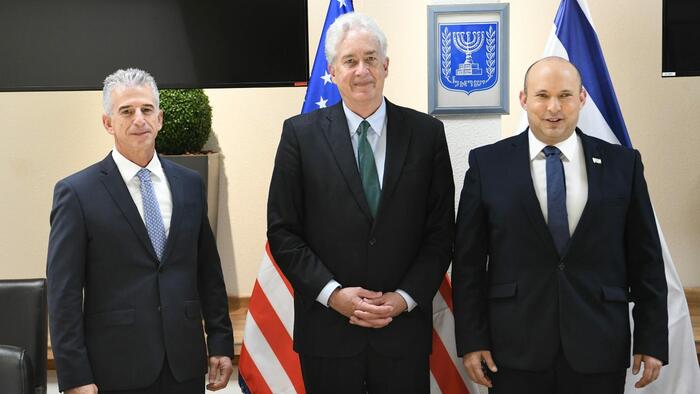Tensions surrounding potential Israeli military action against Iran appear to be momentarily subdued, particularly with diplomatic efforts focusing on the ongoing hostage crisis involving Israeli captives in Gaza. Israeli media reports indicate that Mossad chief David Barnea will be traveling to Doha to engage in discussions aimed at securing the release of these hostages and potentially finding a path to halting the conflict between Israel and Hamas. His visit coincides with CIA Director William Burns and U.S. Secretary of State Antony Blinken’s engagement with Gulf allies, suggesting a coordinated effort to address the multifaceted crisis. The underlying dynamics suggest that while diplomatic talks are resuming, previous negotiations have failed and are still hindered by mistrust and unresolved grievances on both sides.
The meeting in Doha, which includes the Qatari Prime Minister Sheikh Mohammed bin Abdulrahman Al Thani, holds significant implications for the direction of the negotiations. Recent developments, including the death of Hamas leader Yahya Sinwar, create uncertainties over the group’s command structure. Speculation has emerged regarding Khalil al-Hayya, Sinwar’s deputy, as a potential successor and key player in the negotiations. With al-Hayya’s background and experience, he may play a pivotal role in shaping Hamas’s response to Israeli overtures and the broader political context. Negotiations could face substantial hurdles given the leadership changes and the historically contentious relationship between the involved parties.
As the situation evolves, the implications of past failures in negotiations further complicate the current landscape. The dynamics between Hamas and Israel have largely been characterized by mutual blame for the lack of progress, which raises doubts over whether newly initiated talks will yield tangible results. Adding to the complexity is the fact that Hamas’s leadership transition may affect its strategic decisions and its willingness to engage in negotiations. The current power struggles within Hamas could mean that any advances in discussions might be short-lived or easily undermined by internal dissent, especially if different factions exhibit varied levels of commitment to ceasefire agreements.
Israeli Prime Minister Benjamin Netanyahu’s decision to pursue renewed negotiations could also be interpreted through a political lens. Facing mounting pressure from the families of hostages and the broader Israeli public, as well as the approaching U.S. presidential elections, Netanyahu may seek to demonstrate a commitment to resolving the crisis. The urgency created by these external pressures could be motivating this diplomatic push, reflecting both domestic political considerations and international expectations for progress. However, the effectiveness of such strategies could be hampered by the dire humanitarian situation in Gaza, with heavy fighting reported and a growing humanitarian crisis exacerbating the challenges to achieving a sustainable resolution.
Critically, the backdrop of violence in northern Gaza and the onset of famine in southern regions poses serious challenges to negotiation efforts. The humanitarian crisis may prompt international actors to advocate for immediate ceasefires and humanitarian aid, further complicating the interplay of military and diplomatic strategies. With escalating hostilities and deteriorating conditions on the ground, any potential agreements reached may be rendered ineffective in the face of continued violence and suffering. The complexity of the situation reinforces the importance of consistent and meaningful dialogue, along with the international community’s engagement in alleviating humanitarian concerns while seeking a viable conflict resolution framework.
In summary, the present diplomatic efforts between Israeli and Palestinian representatives are fraught with challenges, ranging from leadership transitions within Hamas to the urgent humanitarian crisis in Gaza. While the reinitiation of high-level talks hypothesized by Israeli officials may offer a temporary reprieve, their lasting efficacy remains uncertain, especially in light of past failures. The broader geopolitical context, including the U.S. elections and domestic political pressures, shapes the motivations of key players in this ongoing struggle. Ultimately, the success of the negotiations depends not only on the involved parties’ willingness to compromise but also on the international support for a holistic approach to ending hostilities while addressing the pressing humanitarian needs resulting from the conflict.

